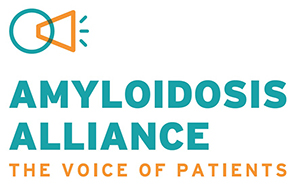Taking the next steps after diagnosis
When diagnosed with hereditary ATTR (hATTR) amyloidosis, it’s important to know that you’re not alone. Your friends, family, doctor, and various resources are available to help manage your diagnosis.


Build your support system
After diagnosis, there are going to be times that you may need help from loved ones. The following steps can help you create a support network:
Discussing your diagnosis of hATTR amyloidosis with your family can help them better understand what you’re going through, making it easier for them to find opportunities to help you in your everyday life, and helping them to know more about their own health.
Help your caregiver help you
A caregiver is a loved one who wants to help you manage the symptoms and effects of hATTR amyloidosis. While this can require lifestyle changes and adjustments, there are resources and information available to them.
Find a support group
Support groups can provide invaluable insight into life after diagnosis and to better understand the disease. By meeting other patients and by hearing their experiences, you can learn tips for managing daily activities, talking with doctors, and fostering positive change.
Amyloidosis Alliance is an international umbrella patient advocacy organisation, aiming to raise awareness and improve the quality of care of amyloidosis patients.
Click here to visit their website to find out more about the work they are doing to help patients across Europe and beyond.
Manage your stress
After diagnosis, it’s important to work with your caregiver and doctor to manage stress related to hATTR amyloidosis. There are many different techniques for managing stress, such as:
- Talking with loved ones
- Light activity
- Reading
- Participating in hobbies
Discuss options with your doctor
Talk with your doctor about any concerns or additional symptoms you might be experiencing, and to understand their recommended course of action.
IN THIS SECTION

